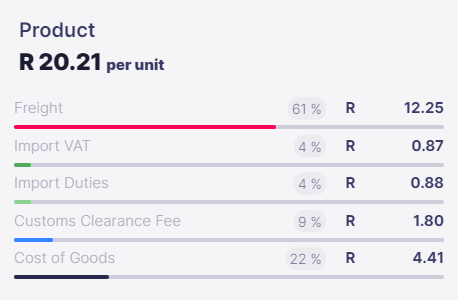Just a few decades back, the idea of women owning and managing their own businesses was considered a little “too ambitious”. Today, one-third of high-growth businesses in the world are run by women. The internet, specifically, has opened up endless possibilities that were once completely out of reach, making it more accessible than ever for women to thrive in the business world.
According to a report by The Heavy Chef Foundation, 63% of ecommerce companies in South Africa are founded and led by women. These pioneering women have set up thousands of online businesses, showcasing a diverse array of products across various categories such as jewellery, home furnishings, handicrafts, home utility products, fashion apparel, and accessories.
All of these women entrepreneurs are making their mark in the world of ecommerce while empowering others to do the same. Right now, is the perfect moment for more ambitious South African women to join in and make their mark too.
But why ecommerce, specifically?
Since the pandemic hit, 68% of South African shoppers have turned to online shopping. And it’s predicted that the value of ecommerce in Africa will grow four times by 2030, which means even more chances for women to succeed in this field.
Women have a massive influence in shaping the e-commerce marketplace. According to Forbes, they are responsible for driving approximately 80% of consumer purchases. Being a woman yourself gives you a great advantage if you want to start an online store. You know exactly what appeals to women shoppers, which can help you pick the right products to sell.
A lot of South African women are not just entrepreneurs – they also take on the role of being the backbone of their households and the primary caregivers for their children. It can be incredibly hard to balance their personal and professional responsibilities. Ecommerce gives them the flexibility to work from home or any location with an internet connection.
This way, they can organise their work around their day-to-day chores and delegate aspects of their business such as logistics to third parties while still being present for their loved ones. They don’t have to end up choosing between family and business.
Starting a business often requires significant capital to cover expenses such as renting a physical space, stocking inventory, and setting up a storefront. Many women in SA don’t have that kind of money. With ecommerce, you can start small and spend less money upfront. You can create an online store, list products, and reach potential customers without the need for a physical location. This low barrier to entry makes it much easier for women to turn their business ideas into reality.
When women run their own businesses, they’re also gaining a sense of financial independence and creative fulfilment. This newfound financial freedom also lets them have more say in important decisions at home. By earning extra money for their families, they gain more independence and influence.
With more moms, wives, and daughters starting their own businesses, society is beginning to see women in a whole new light. The old stereotypes are breaking down, and women are proving their worth as successful entrepreneurs.
If you’re an aspiring woman entrepreneur in South Africa, there has never been a better time to venture into the ecommerce space. Here’s how you can get started:
At Airpool, we’re all about supporting and nurturing the aspirations of South African women entrepreneurs like you. We truly believe in the incredible potential and talent you bring to the table, not just during Women’s Month, but every single day.
With our hassle-free consolidation shipping from China to South Africa, you’ll be able to save on shipping costs, reduce operating expenses, and – your customers will receive their goods within a speedy timeframe of just 7-10 working days! Get in touch with us to find out how we can take flight together.
Landed cost is the sum of all expenses associated with importing your goods from China to South Africa. This includes the cost of the goods paid to your supplier, the shipping costs, clearance costs and the import taxes & duties.
It is represented on a per unit cost and helps you with:
Note: This is not what you are paying to Airpool but rather what you are paying to all the suppliers and relevant parties: Airpool, the Manufacturer of the goods and the Import Taxes (VAT & Duties)
